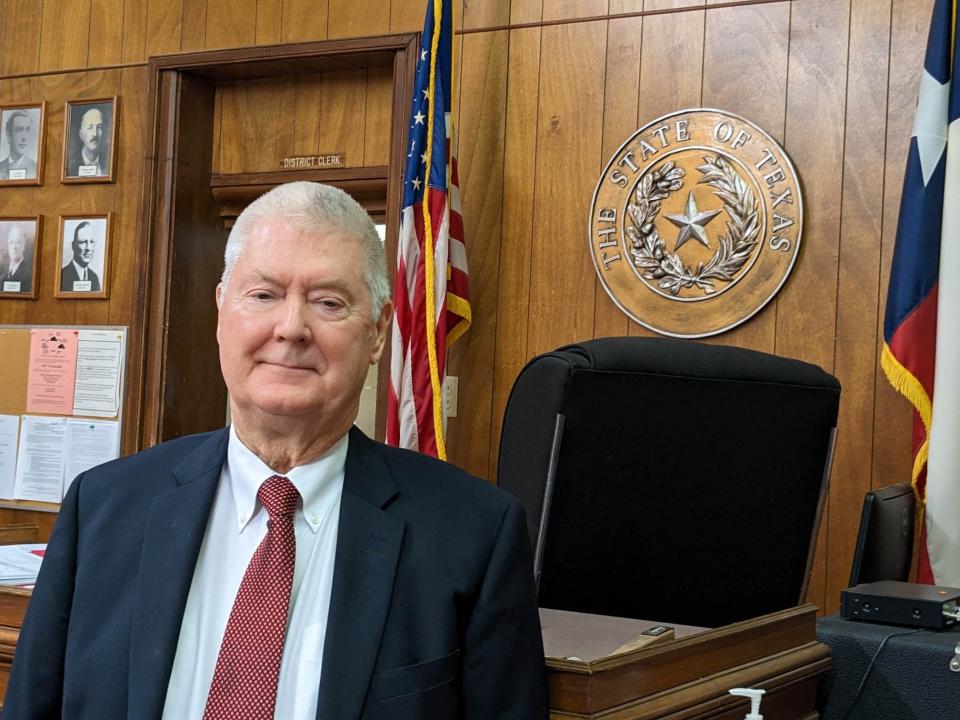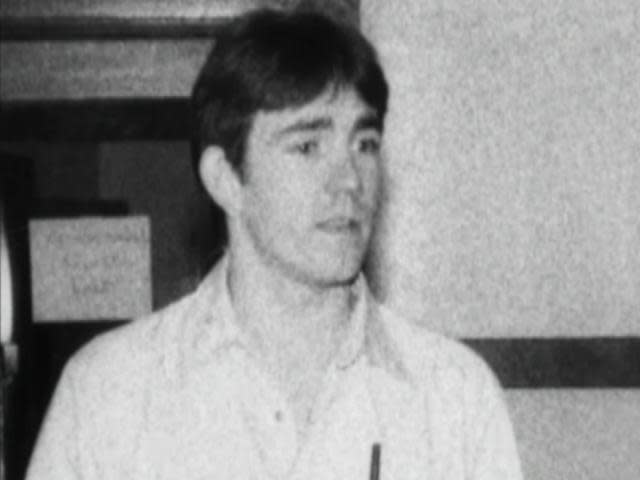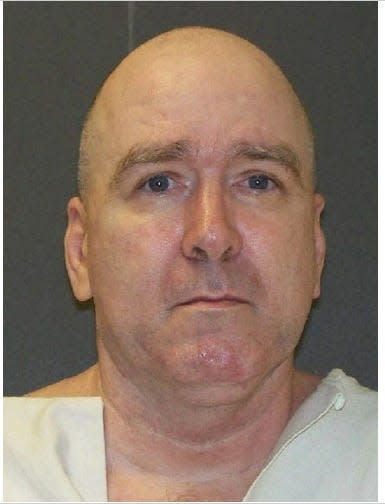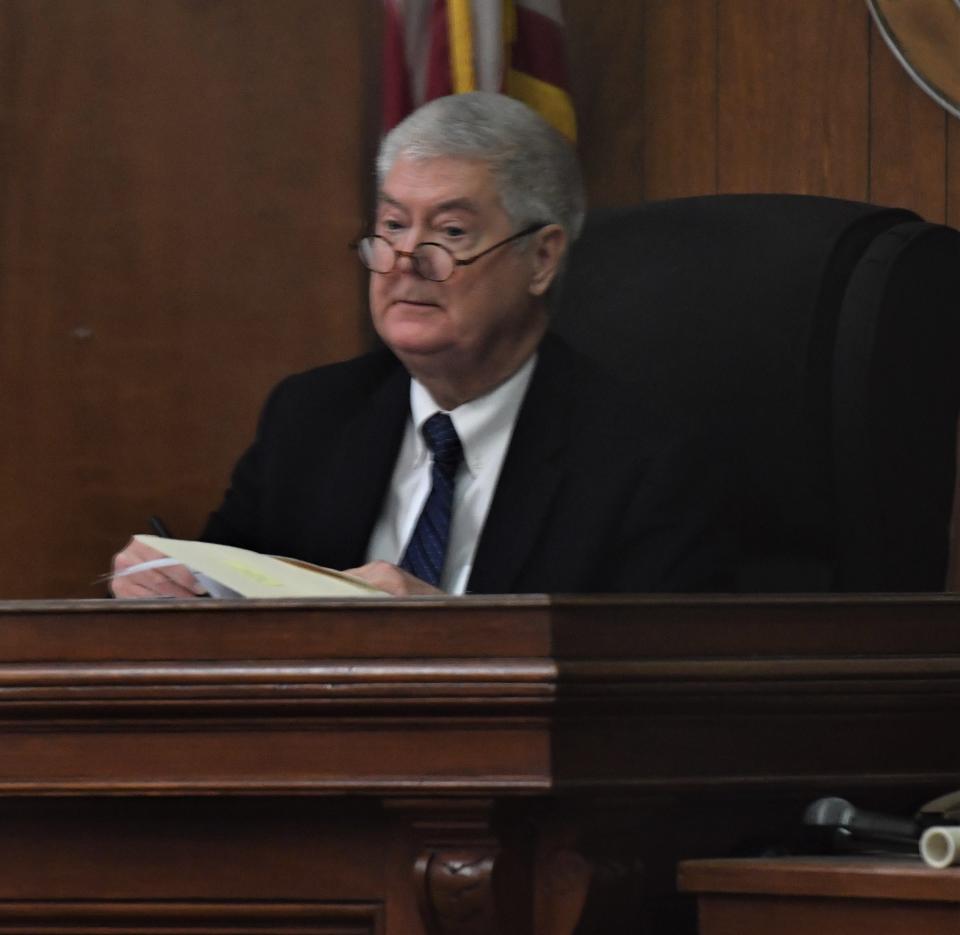A Lawful Life: McGaughey recalls controversial role in high-profile murder case
Editor's Note: This is part one of A Lawful Life, a two-part series looking at the career of recently retired 97th District Judge Jack McGaughey. He has been active on the legal scene in North Texas for decades, involved in high-profile cases in different roles. Part two is coming soon.
Jack McGaughey, who just retired as 97th District Court judge, played a key role in one of Wichita Falls' most sensational murder cases, drawing criticism and political consequences for a controversial decision.

Years passed before time and technology proved McGaughey made the right decision.
On Jan. 19, 1985, Toni Jean Gibbs, a 23-year-old nurse at Wichita General Hospital, failed to show up for her late-night shift. Gibbs, a petite blonde woman, was a native of Clayton, New Mexico, who came to Midwestern State University on an art scholarship but switched to nursing.
Her parents told investigators their daughter had complained of getting “scary phone calls” for several weeks in which the caller described what she had been wearing and said “nasty things.”
As authorities and volunteers searched for Gibbs, the community was on edge. Teri Simms, a technician at Bethania Hospital, had been found stabbed to death in a home on Bell Street a month earlier in Wichita Falls.

The Gibbs disappearance on the heels of the Simms murder was big news even though authorities denied any connection between the two cases. It made headlines every day and was on the TV news every night for weeks.
On Feb. 16, a Texas Electric worker found Gibbs’ nude body near an abandoned school bus in a field on West Jentsch Road. She had been stabbed repeatedly.
Gibbs was murdered barely inside the Archer County line, so McGaughey, a young district attorney for the 97th Judicial District at the time, teamed with Wichita County DA Barry Macha to resolve the case.
The 97th District includes Archer, Clay and Montague counties.
By mid-April, investigators were eyeing a potential suspect, a 24-year-old nightclub bouncer named Danny Wayne Laughlin. He was called before an Archer County grand jury.
“He was evasive in a lot of his answers. It was clear from his testimony he knew Toni Gibbs. He worked at a bar or restaurant where she would occasionally come with friends," McGaughey recalled.
Laughlin knew the area where the body was found, the retired judge said.
"He kind of became a natural suspect,” McGaughey said.
He also recalled Laughlin’s behavior was odd.
“Most people when they become a suspect will try to distance themselves from the investigation. If anything, he wanted to be in the middle of it,” McGaughey said. “He painted a target on his own back.”

On May 6, Laughlin was indicted for lying to the grand jury about not being in the field where Gibbs’ body was found.
Then in October, the grand jury indicted him for murder although McGaughey had misgivings about the case from the beginning.
He said the prosecutors could prove Laughlin’s presence in the field “but not a lot more.”
Laughlin's murder trial began in Gainesville on a change of venue on April 10, 1986.
“Barry and I, after looking it over, thought we had a circumstantial case, and we put it to the jury,” McGaughey said.
A Texas Ranger testified that Laughlin admitted being in the field, seeing Gibbs' body and being aware of evidence that was never publicly disclosed.
A woman testified she had seen Laughlin in the field days before body was discovered. An inmate in the Archer County Jail where Laughlin had been held testified Laughlin told him he had killed Gibbs.
But the defense presented evidence Laughlin was at work at the time Gibbs vanished.
The jury deadlocked with 11 jurors convinced Laughlin was innocent.
“We couldn’t really link him to the crime,” McGaughey said.
The judge declared a mistrial.
Law-enforcement officers, Gibbs’ family and Macha wanted to move ahead with a second trial.
“My thought was, we nearly had a disaster here. If it’s not guilty the next time, that’s the end of it,” McGaughey said, referring to the possibility of double jeopardy.
He dismissed the case against Laughlin in December.
“It was a difficult decision,” he said. “It takes a political toll. It may have played a role in the election where I was defeated.”
Fast forward a dozen years and authorities arrested a suspect in the murder of Terri Sims.

Faryion Edward Wardrip, 39, was eventually also charged in the murders of Gibbs and Ellen Blau, 21, whose body was found in a field in October 1985.
He had already served 11 years in prison after he confessed to the murder of Tina Killebrew, 21, found dead in her apartment on Seymour Road in May 1986. Wardrip also confessed to killing Debra Taylor, 25, in March 1985 in Fort Worth.
Wardrip was linked to the cases after an investigator, the late John Little of the Wichita County DA's Office, obtained his DNA from a paper cup.
Although authorities initially denied any links in the rash of murders of young women here in the mid-1980s, Wardrip became Wichita Falls' first — and to date only proven — serial killer.
“I was glad to see that happen,” McGaughey said of the conviction that justified the dismissal of the charges against Laughlin.
Wardrip was sentenced to death, but through legal maneuvering, he has remained alive on death row for 24 years.

Whatever political damage McGaughey may have incurred as a result of dismissing the murder case against Laughlin was short-lived.
McGaughey was eventually appointed to his former post as DA for the 97th District and was elected judge in 2012. He retired from the post May 31.
Over a long career he worked several high-profile cases, including that of infamous, self-confessed serial killer Henry Lee Lucas. He was arrested in 1983 in Montague County.
Laughlin served prison time in Texas on some burglary convictions and served six months for the abduction and rape of a woman in Arizona. He was killed in a motorcycle accident in Colorado in 1993.
McGaughey remembers him as a flamboyant man who liked to focus attention on himself and believes he may have seen Gibb’s body in the field before authorities found it.
Laughlin's love of the spotlight brought him one juror shy of a murder conviction.
“He wanted his 15 minutes of fame,” McGaughey said.
More: Two Wichita Falls cyclists killed in wreck near Dean
More: Judge tightens Anthony Patterson's bail conditions
This article originally appeared on Wichita Falls Times Record News: McGaughey recalls controversial role in high-profile murder case

